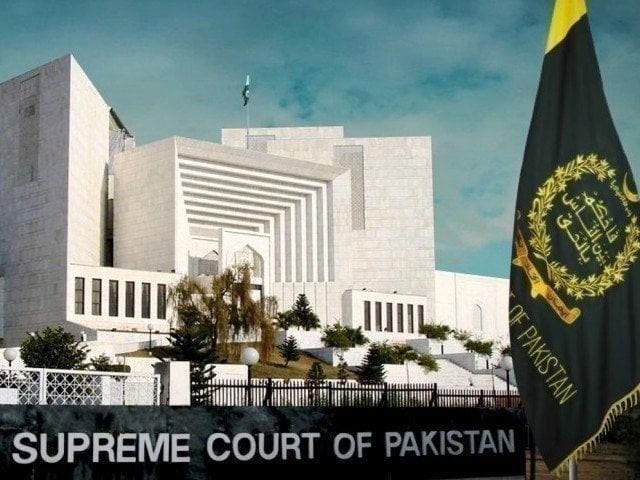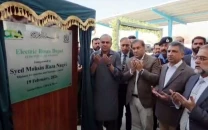JCP to review tenure of constitutional benches
Commission set to meet on June 19

A crucial meeting of the Judicial Commission of Pakistan (JCP), chaired by Chief Justice Yahya Afridi, will be held on June 19 in the Supreme Court building. The meeting will discuss extending the tenure of constitutional benches.
The matter was last addressed in the commission’s session on December 21, 2024, where a majority approved a six-month extension for the nominated judges of the Supreme Court’s constitutional benches.
At present, 15 judges have been working for the constitutional benches. Among them, a committee led by Justice Aminuddin Khan and comprising Justice Jamal Khan Mandokhail and Justice Muhammad Ali Mazahar selects judges for the particular constitutional benches.
Extension of constitutional benches has been proposed for the second time. The federal government on December 21 managed to get its way at the JCP which had rejected a suggestion to nominate all Supreme Court judges to its Constitutional Bench (CB) by a majority vote of 7 to 6.
Except Justice Aminuddin, all JCP's judicial members namely CJP Yahya Afridi, Justice Syed Mansoor Ali Shah, Justice Munib Akhtar, Justice Jamal Khan Mandokhail had voted for all the Supreme Court judges to be part of the CB. Two PTI members Barrister Gahar Ali Khan and Barrister Ali Zafar supported their view.
However, the government as well as the Pakistan Bar Council (PBC) representatives in JCP did not support their suggestion. The judicial members had faced embarrassment, when their own fellow judge, Justice Aminuddin Khan, did not support their suggestion.
The JCP by majority 7 to 6 endorsed the extension of the CB led by Justice Aminuddin Khan for six months.
Once again it is being expected that the government will be successful to get majority votes for the extension of present CB, which performance is under question. There is no objective criteria for the selection of judges for CB.
Performance of CB
The present CB led by Justice Aminuddin Khan has been able to issue only three reported judgement since it's creation through 26th constitutional amendment.
The CB had issued first reported judgement in January. This two-page decision was related to the jurisdiction of CB itself. The order had held that regular benches could not hear matters related to the interpretation of law and constitution.
Secondly, reported short order has been passed in military courts case. Likewise, another reported judgement was authored by Justice Jamal Khan Mandokhail.
Lawyers are wondering as who will judge the performance of the constitutional bench. They are also raising question that why Justice Mandokhail is not being given independent CB.
A lawyer says that the CB started by spending two months studiously avoiding the 26th Amendment case in favour of hearing cases of no importance which had already become infructuous.
"It followed that by spending four months almost exclusively on the military courts case before passing a verdict which must surely have pleased the establishment. The only other order of note it passed in that period was to ensure that no regular bench of the Supreme Court could hear any case of importance.
"Next, it took up the reserved seats review case in which most of the original judges were excluded and the few who were included seemed to have suddenly, and inexplicably, become of the opposite view from day one", says the lawyer.
He said that when the idea of a CB elected by politicians was first floated; many said such a bench was fundamentally against the idea of judicial independence and predicted it would reduce the credibility of the SC to nothing. Nonetheless, judges in Pakistan have sometimes defied predictions. “Unfortunately, the CB’s performance thus far has proved this is not one of those times.”
He also said that the stated rationale of the CB at the time of the 26th Amendment was to improve the constitutional jurisprudence of the SC. In its first six months, the number of detailed judgments it has issued can be counted on the fingers of one hand. And all of them have tended to take out jurisprudence backwards and closer to the desires of the establishment,” he adds.






















COMMENTS
Comments are moderated and generally will be posted if they are on-topic and not abusive.
For more information, please see our Comments FAQ